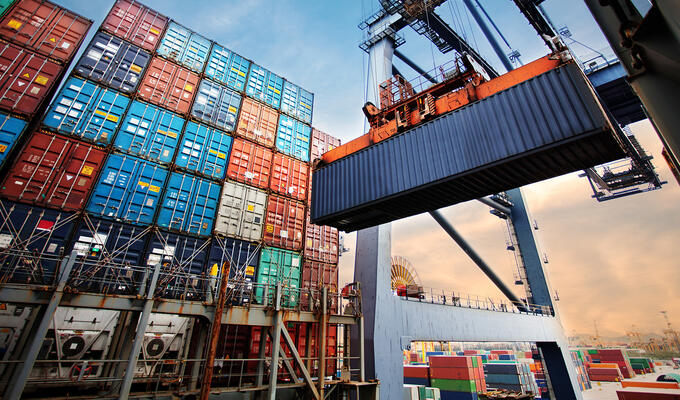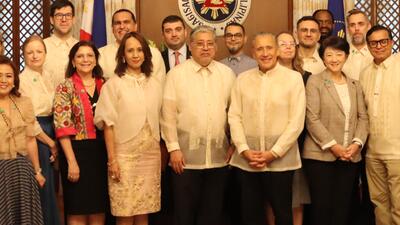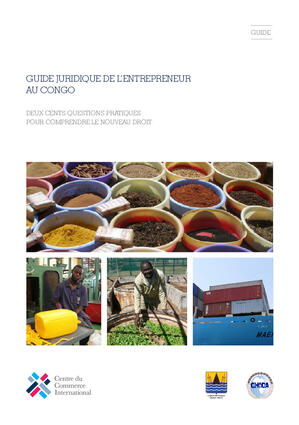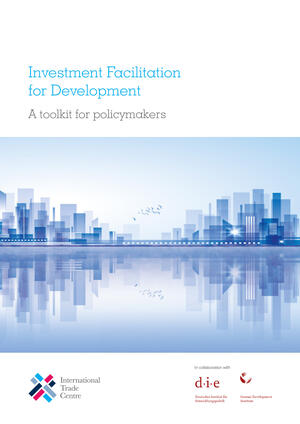


Trade policy formulation and implementation
Developing and implementing a national trade policy is a complex process. It involves various agencies and levels of government, companies and business associations, consumer organisations, trade unions and other members of civil society. Trade policies also need to align with multilateral, regional, or bilateral commitments, and set out the framework for engaging in future negotiations.
ITC works with those who have a stake in trade policy development to help achieve the best results.
We provide the following tailored support to business, trade support institutions and policy makers: advisory services, technical studies and analyses, public and private sector capacity building and facilitation of public-private dialogues.
Trade negotiations
Trade negotiations are a key aspect in international trade. They provide countries with the platform to discuss and deliberate on various commitments at multilateral, regional or bilateral levels. Negotiations include the new trends in trade agreements such as trade and investment, services, e-commerce and the environment.
ITC's support on trade negotiations can include:
- Support on negotiation strategies for multilateral, regional and bilateral trade negotiations;
- Capacity building for trade negotiators and policy officials including academic trade policy courses, training sessions and simulation exercises for relevant stakeholders;
- Developing trade negotiations toolkits, business guides and related material for stakeholders in the public and private sectors;
- Organizing consultations with the business community to increase their understanding of the commercial implications of trade negotiations;
- Empowering the private sector to articulate its priorities to trade negotiators.
Engaging the private sector in regulatory reforms
Successful export development is based on a domestic trade policy that works coherently with a national regulatory regime. To be effective, reforms need to be based on consensus, including with the private sector.
ITC works with national and regional business organizations to ensure that the needs and views of businesses are clearly voiced and inform trade policy and regulatory reforms.
ITC supports the private sector through:
- Enhancing the business advocacy skills of regional and national business support organizations (BSO) and business councils to act as effective representatives of the private sector in trade and investment related policy or regulatory reforms;
- Providing technical guidance to review, develop and revise policies and regulations along the business value chain to ensure a coherent approach to enhancing business competitiveness;
- Training programmes for businesses to engage in policy reforms and better understand business opportunities;
- Coaching the development of evidence-based position papers based on the needs of the private sector to inform policy decisions.
Public-private dialogues
Public Private Dialogue (PPD) is essential for designing effective trade policy and regulations, as it helps identify policy priorities, reduce regulatory costs and builds consensus on policy reforms.
ITC facilitates and supports public-private dialogues (PPDs) by:
- Assessing existing PPD platforms on leadership, representation, coordination, technical capacity and participation, established to inform the formulation and implementation of policy and regulations;
- Informing thematic PPDs with policy papers, evidence-based research and position papers;
- Building a common understanding of all PPD stakeholders on policy and regulatory issues to be addressed through PPDs;
- Organizing PPDs with relevant stakeholders on effective ways of undertaking dialogue;
- Establishing and operationalizing form PPD structures for implementation of trade development strategies.
Inclusive engagement of stakeholders
It is important to mainstream communities in need, such as women and youth, into trade and investment policy into order to drive economic growth and promote equality and inclusiveness.
To enable enterprises to grow, become more competitive and fulfil their potential, policies are required that target and strengthen women’s activities. Coordination, stakeholder engagement and consensus-building are key aspects of this inclusive approach.
ITC can assist by:
- Organizing awareness-raising sessions for stakeholders such as Women’s Associations and associations that support youth and micro, small and medium-sized enterprises (MSMEs) on various trade policy thematic areas;
- Mapping of associations supporting women, youth and MSMEs to identify their numbers, membership size, geographic location, and target sectors;
- Developing guides, videos and pamphlets with information on new trends within international trade;
- Consulting with various stakeholders to understand their needs when it comes to trade policy and enhancing their business advocacy skills.



















